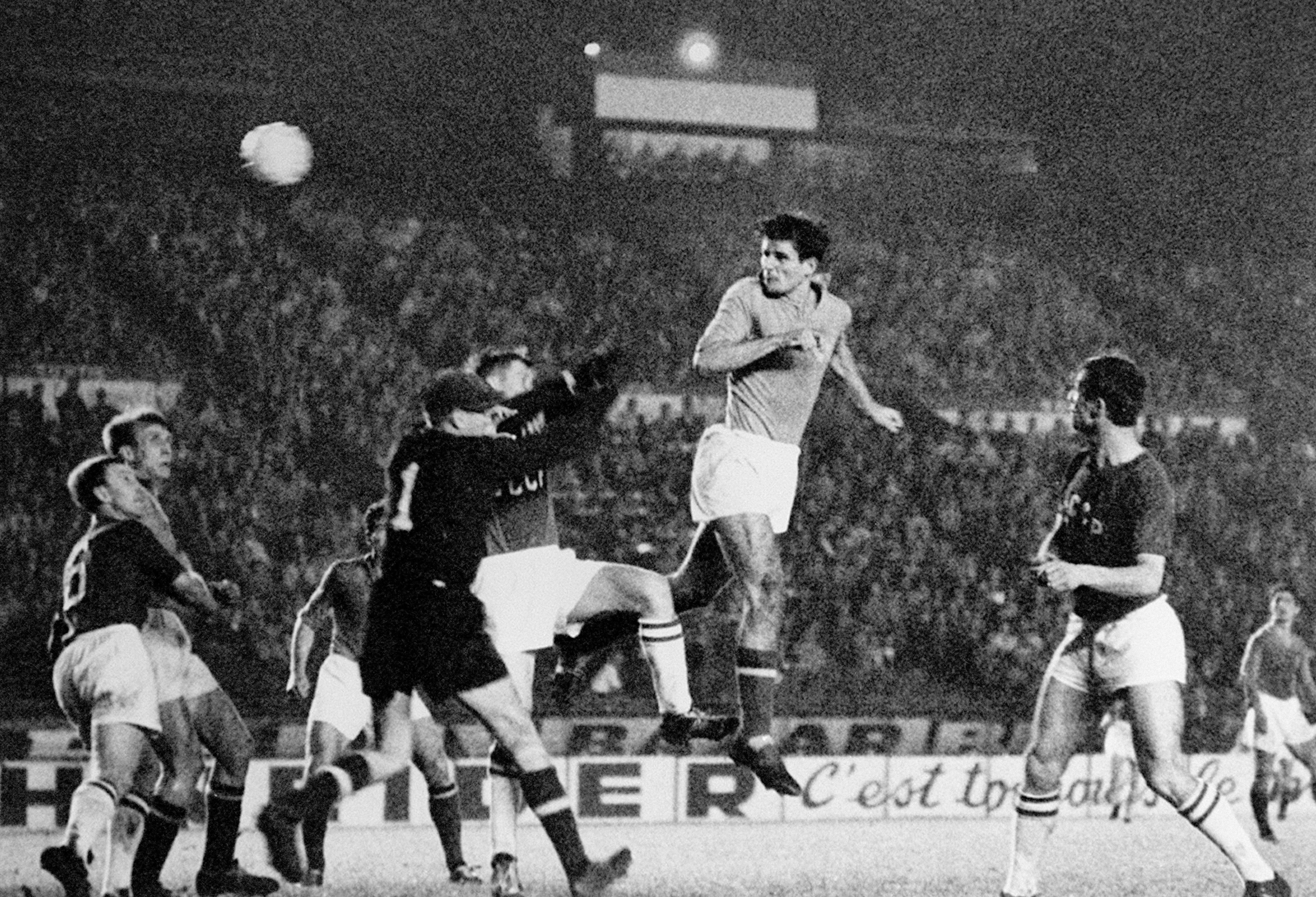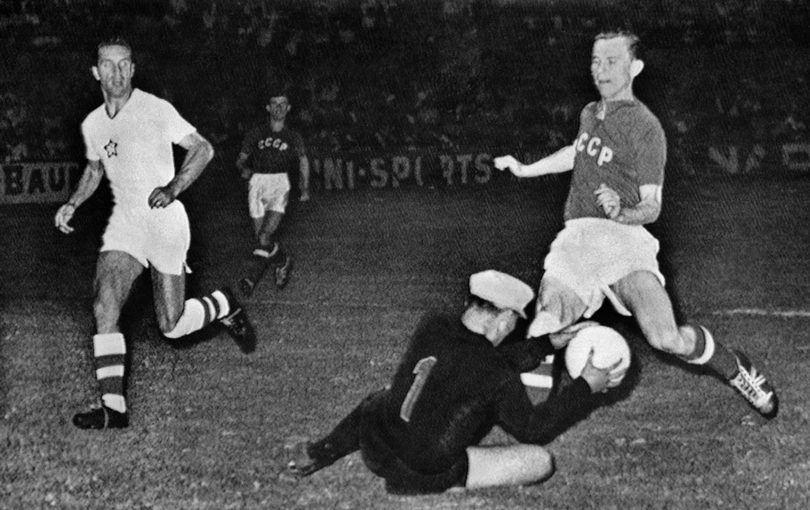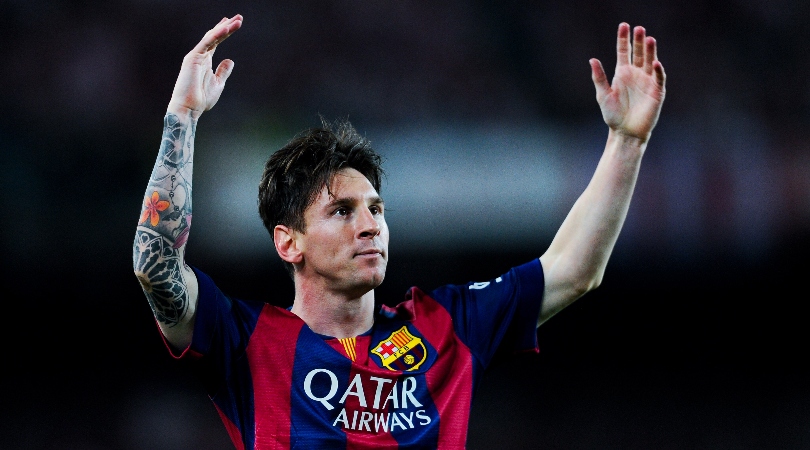Euro 2020: The story of the first European Championship
A year late, Euro 2020 now celebrates the less snappy 61st anniversary of the first European Championship, when the Soviet Union took the inaugural continental crown. Things have changed a bit...

The first European Championship was scheduled for 1960, and its early days were a triumph of contradiction. Struggling to generate enough entrants to even get off the ground, its very first match in qualifying promptly set an attendance record that still stands (more on that later). While some competitions start with shrugged disinterest, and others with more of a bang, the Euros did both.
Back then, Europe was a very different place. French Football Federation secretary-general Henri Delaunay had first come up with the idea of the Euros in 1927, some three years before the inaugural World Cup, but it took 33 years for his dream to come to fruition. He didn’t even live long enough to see it – Delaunay’s grand scheme was delayed by the small matter of the Second World War, putting any sort of Europe-wide bonhomie on hold.
In the years after 1945, the continent lay divided between western powers and the rise of communism in the east. By the mid-1950s, though, attitudes had calmed enough for pan-European football to no longer be regarded as an Orwellian war minus the shooting. UEFA was formed in 1954, a year before the launch of the European Cup; then came the European Nations’ Cup, as the Euros was known for its first two editions in 1960 and 1964.
It was an ambitious project, but some countries simply weren’t interested. West Germany, Italy, Belgium and the Netherlands didn’t bother entering qualifying, and neither did England, Scotland, Wales nor Northern Ireland. In the end, only 17 nations decided to take part – which was just enough to proceed as originally planned, with qualifying consisting of a straight knockout format from the last 16 onwards.

The Republic of Ireland faced Czechoslovakia in a preliminary round tie to whittle the countries down to 16, although confusingly it wasn’t the first- ever Euros qualifying match. That was a last 16 first leg between the Soviet Union and Hungary, played in Moscow on September 28, 1958. An incredible 100,572 people turned up to see that game at the Central Lenin Stadium (since renamed the Luzhniki), which is still the highest attendance for any fixture associated with the Euros, either in qualifying or at the final tournament. Perhaps the novelty factor played its part – Soviet clubs didn’t enter the European Cup until 1966.
Without Ferenc Puskas, who’d left for Spain two years earlier, Hungary were beaten 3-1 by the Soviets in the first leg then had to wait a whole 12 months for the second – they lost that one too, in front of over 78,000 in Budapest.
Ireland didn’t make it through the preliminary round, losing 4-0 in Bratislava after carrying over a 2-0 win from the first leg in Dublin. In the last 16, among other abacus-bashing results, France thrashed Greece 8-2 on aggregate, East Germany lost to Portugal home and away and Alfredo Di Stefano scored three times as Spain overcame Poland. Given that Real Madrid had won the first five European Cups from 1956 and Luis Suarez (not that one) was tearing it up at Barcelona, La Roja looked like top contenders, too.
Get FourFourTwo Newsletter
The best features, fun and footballing quizzes, straight to your inbox every week.
Four countries were due to travel to the finals in July 1960, although the identity of every team involved wasn’t known until late May, when Czechoslovakia beat Romania in the quarter-finals – aided by future Ballon d’Or winner Josef Masopust of Half Man Half Biscuit favourites Dukla Prague. Yugoslavia came from behind to thrash Portugal, while Spain’s withdrawal gifted the Soviet Union qualification after fascist dictator General Franco banned the team from travelling to Moscow, the fortress of communism.

France had battered Austria 9-4 on aggregate to qualify as early as March, and were soon announced as hosts of the final tournament. With Just Fontaine and Raymond Kopa on form, the trophy seemed to be within their grasp.
Not for the last time in history, though, Les Bleus failed to deliver as expected in a big Euros fixture in Paris. Sensationally, the Euros’ first-ever tournament match ended 5-4 – still the highest-scoring game in European finals history – as Yugoslavia snatched victory in the Parc des Princes semi.
Fontaine and Kopa had been ruled out through injury, and the hosts conceded three goals in four minutes (two from Croatian forward Drazan Jerkovic) to chuck away a 4-2 lead late in the game and turn the match on its head. Months later, Edith Piaf released Non, je ne regrette rien – presumably it wasn’t written about that semi-final, otherwise it would have been called Oui, Je Regrette All Those Goals We Conceded In The Second Half.
French enthusiasm for the event waned from there – only 9,000 turned up to see them lose again in the third-place play-off at Marseille’s Stade Velodrome. In the end, the top three teams at the tournament were all countries which no longer exist – though given the number of players they had to choose from, perhaps it shouldn’t have been a surprise that they did so well.
In the other semi-final, the combined forces of the modern-day Czech Republic and Slovakia (aka Czechoslovakia) were beaten 3-0 by the Soviet Union – in today’s money, that’s a combination of Russia, Ukraine, Belarus, Moldova, Estonia, Latvia, Lithuania, Georgia, Armenia, Azerbaijan, Kazakhstan, Uzbekistan, Tajikistan, Kyrgyzstan and Turkmenistan.
That set up a final between the Soviets and Yugoslavia – or as you can call them now, Serbia, Croatia, Bosnia-Herzegovina, Slovenia, Montenegro, North Macedonia and Kosovo. The two communist powers had fallen out during the days of Joseph Stalin (yes, really), although relations had since improved between Yugoslavian President Josip Broz Tito and new anti-Stalinist Soviet leader Nikita Khrushchev.
Here, though, they were at loggerheads once more. It was Yugoslavia who went ahead through Milan Galic in the final at the Parc des Princes, played just four days after the semi-finals. A crowd of 17,966 watched on as Georgian winger Slava Metreveli equalised for the Soviets just after the interval, taking the game into extra time.
It got better: with legendary goalkeeper Lev Yashin on top form to prevent the Yugoslavs regaining their lead, the USSR grabbed their winner in the 113th minute, thanks to a header from SKA Rostov forward Viktor Ponedelnik – that’s ‘Victor Monday’ in Russian. He was a day early – the game was actually played on a Sunday – but probably didn’t care much.
Thanks to Mr Monday, the Soviet Union went down in history as the Euros’ first ever winners. In the ensuing 31 years before the fall of communism, they were never able to win it again...
Subscribe to FourFourTwo today and get your first five issues for just £5 for a limited time only - all the features, exclusive interviews, long reads and quizzes - for a cheaper price!
NOW READ
WALL CHART Euro 2020 wall chart: Download free with full schedule, fixtures and dates
GROUNDHOPPER Euro 2020 stadiums: Host cities, capacities, and everything you need to know

Chris joined FourFourTwo in 2015 and has reported from 20 countries, in places as varied as Jerusalem and the Arctic Circle. He's interviewed Pele, Zlatan and Santa Claus (it's a long story), as well as covering the World Cup, Euro 2020 and the Clasico. He previously spent 10 years as a newspaper journalist, and completed the 92 in 2017.
